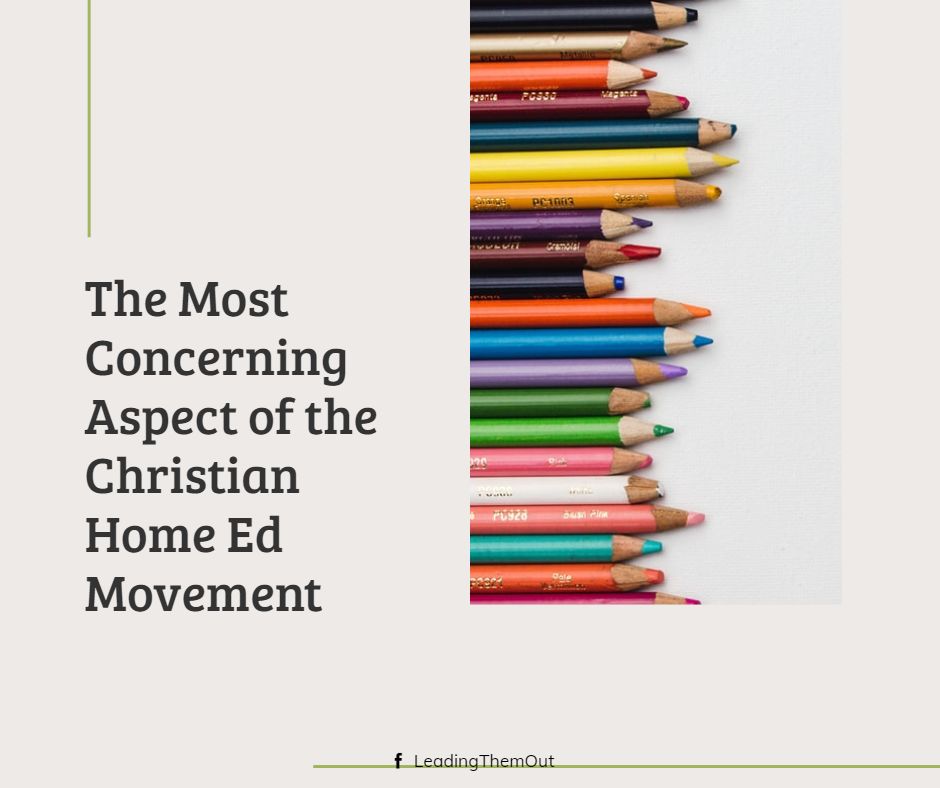Do you know what I am going to say?
OK, here it is. Time and time again I meet a home educating family and somewhere in the course of the conversation I ask which church they belong to. Awkward silence. ‘We don’t belong to a church at the moment’. In fact, according to my own private polling (!) It appears to me that Christian home educators are less likely to be members of a local church than professing Christians in general.
I realise there is always a story behind (my own) statistic. Many home educators have been burnt by local churches. There is a wide spectrum between those churches who actively encourage Christian education and those who actively discourage, with all the views in between. There will always be quibbles about a point of doctrine, some individuals whom we might find it harder to worship with, a leadership decision that we struggle to support. However, it is alarming to me that so many home educators have literally cut themselves off from the body of Christ and determined that they can function on their own.
Parents, if you are not members of a local church right now, can I encourage you to rethink your position on three counts:
1. Obedience to the Lord
Attending a church is an act of obedience to the Lord. It is clear from Scripture that there is an invisible, universal church made of all believers (Col 1:18). Nevertheless, the existence of this universal church is in no way an excuse for not attending a local church. Scripture assumes attendance at a local church. Consider how many New Testament books were written to churches, think about Paul’s determination to appoint elders of churches wherever he visited.
The discipline of wayward believers takes place in the context of a local church (Matthew 18:15-20) as does the administration of baptism and the Lord’s supper (1 Corinthians 11:17-34). The writer of Hebrews exhorts his readers, ‘let us consider how to stir up one another to love and good works, not neglecting to meet together, as is the habit of some, but encouraging one another,’ (Hebrews 10: 24-25). How are we to obey Scripture’s command to love and encourage one another if we are not meeting with other believers?
2. Testimony to Our Children
What messages are we giving to our children when we decide not to worship with other believers? Children learn from our actions as much as our words and if we are not in fellowship with other local believers what might they be learning from us?
Here is a quick list:
– Nobody else is good enough for us to worship with them.
– Some sins and grievances are unforgivable.
– Getting out of bed and attending a church on the Lord’s Day is too much like hard work.
– Sport (or some other activity) is more important than worship.
– All churches are so universally and thoroughly in error that God has failed and there is no hope for the advance of his kingdom.
– We cannot fellowship with other Christians unless we are in 100% agreement on every minor jot and tittle of doctrine.
Children only have to start reading the Bible for themselves to realise that there is a mismatch between the beliefs parents profess and the life Jesus calls us to when we deliberately and consistently refuse to join a local church. If we live in such obvious contradiction to the path we are commanded to take then it becomes much easier for children to questions our other beliefs.
3. Fruitfulness in Our Lives
If coal is removed from the fire, it stops glowing. If an arm is cut off from the body it will die and become useless. If a flower is removed from stem, the flower will wither. Meeting with other believers to worship God and sit under the teaching of the Word will bless us in an abundance of ways. In the context of meeting with local believers, we sing and have fellowship, we encourage one another and bear one another’s burdens, we reach out to the lost, we are prevented from falling into serious error.
Home educating families have taken a big and bold step. However, while removing our children from the influence of the state may be a righteous decision, to remove ourselves from the influence of the local church is not. Let’s not equate education away from the state classroom to Christianity apart from the church. The two are not the same thing. Jesus shed his blood for the church; he did not shed his blood for the state.
It troubles me that so many Christian Educators have got this wrong, which is why, while I commend their desire to educate your children in the Lord, I find myself writing about this most concerning aspect of our movement.

